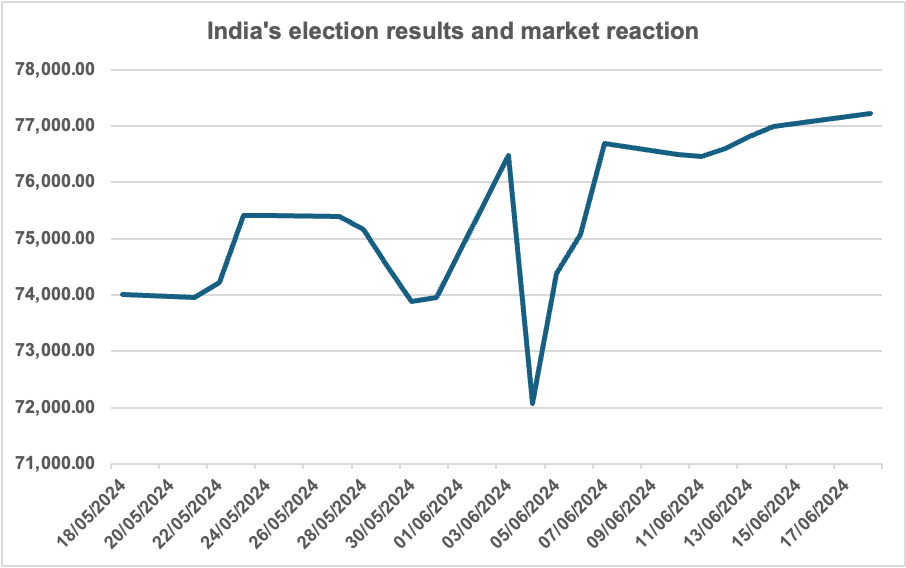Take a deep breath in a year of elections
- David Langley
- Aug 15, 2024
- 2 min read
Market responses to elections should be treated with caution.
Source: Investing.com
2024 is a year of elections around the globe – in varying shades of democracy. On some counts, around 60 countries will vote, representing close to half of the world’s population. This includes eight of the world’s most populous nations – Bangladesh, Brazil, India, Indonesia, Mexico, Pakistan, Russia, and the United States. June saw European Parliament elections, followed rapidly by the surprise calling of French parliamentary elections. By chance, the two polling days for those elections straddled the UK general election on 4 July.
The big election of 2024 is the US presidential election due on 5 November. If the six weeks of the UK’s general election seemed agonisingly long, you can understand why Americans, with their one-year-plus campaigns, feel envious of our democratic process. Even once the US votes are in, it will not be until 20 January 2025 that the new president is inaugurated – if all goes to plan this time.
Investment markets take a close interest in political developments, but their guess is as good as ours at divining what impact the results will have and how to react to them. On long-term visualisations of major global stock market indices, it’s virtually impossible to detect the changes of government along the paths of jagged lines without the help of parliamentary term shading.
In the short term, market responses can be simply reactive. This was demonstrated in the world’s largest election of 2024, which took place in India over seven phases between 19 April and 1 June. When the results were announced on 4 June, they were, in the words of The Economist, ‘A shock election result’. As the graph above shows, the Indian stock market, as measured by the BSE Sensex Index, dived over 5.7% on the results day, having risen 3.4% the previous day. The ‘shock’ proved short-lived and three days later, as the political situation became clearer, the BSE Sensex was back above its pre-election level.
For investors, it is arguable that politics is just noise. To borrow a long-ago US political soundbite, ‘it’s the economy, stupid’, not politics, which has greater relevance.
The value of your investment and any income from it can go down as well as up and you may not get back the full amount you invested.
Investing in shares should be regarded as a long-term investment and should fit in with your overall attitude to risk and financial circumstances
Articles on this website are offered only for general informational and educational purposes. They are not offered as and do not constitute financial advice. You should not act or rely on any information contained in this website without first seeking advice from a professional. Past performance is not a guide to future performance and may not be repeated. Capital is at risk; investments and the income from them can fall as well as rise.

























Comments